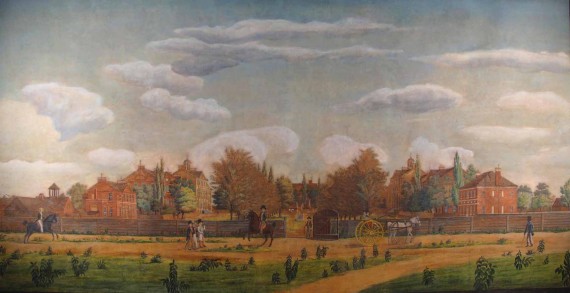Senator Sam Ervin of North Carolina told a friend in 1980 that, “I’m bound to confess that President Carter has instilled some foreboding in prospect to the outcome of the election….As I interpret his campaign sermon, President Carter said states’ rights had become as obscene as any four-letter word, and Ronald Reagan had proved his unfitness for the presidency by telling a Mississippi audience in a recent speech that he believed in states’ rights. While Jimmy Carter is going to get my vote, I fear that his campaign sermon may have lost him the absentee votes of my three granduncles and their Confederate comrades who died in the Civil War fighting with General Robert E. Lee for states’ rights.”
While little has changed in the political class in 36 years, “states’ rights” may be the political movement of the 21st century. It certainly has legs.
Donald Trump shocked the political establishment by winning more states than people. This led to a renewed called to abolish the Electoral College and drove some west coast pinkos to seek out…gasp…secession! In both cases, the people of the states, the heart of the American political system, are making their views known. Those in “fly over country” decided the election while their leftist counterparts in California and New York are rethinking their commitment to national politics. It probably won’t last for that group, but at least for now federalism is gaining more traction in the American polity than at any point in the last 150 years.
That is a good thing, and we at the Abbeville Institute would like to think we have had a role in that process. Our mission to explore what is true and valuable in the Southern tradition has lent to the growing interest in American decentralization. We have helped provide the intellectual underpinning for the various “Tenth Amendment” resolutions and the renewed interest in real American federalism on both the left and the right.
In the last year alone, we added nearly two hundred articles on Southern history, culture, and politics to our website, produced two fine conferences on the real meaning of the PC-attack on the South and the importance of state interposition, and hosted a rousing Summer School on how the Southern tradition can renew America. “The South is America” has become one of our strongest messages. The “Occupy Wall Street” folks don’t realize it, but John Taylor of Caroline and the Southern agrarians were pushing that message in a more meaningful way long before they set up their tents in New York City. California secessionists would not have the philosophical mettle without the Southern men who crafted the Jeffersonian tradition and took it to its logical conclusion in 1861. It did not have to end in war. Lincoln chose that path. So many parts of the “American” cultural tradition are in fact Southern.
And this is only scratching the surface. As we continue to grow, to attract new scholars and other folks who are interested in what the Southern tradition can provide for Americans of all backgrounds and interests–for the Southern tradition offers much to emulate–we hope you will support our efforts.
The future of the Southern tradition is bright. It is our job to rekindle the Jeffersonian political tradition and the Southern cultural tradition and make them once again the bedrock of the American experiment.
That would be real hope and change.







